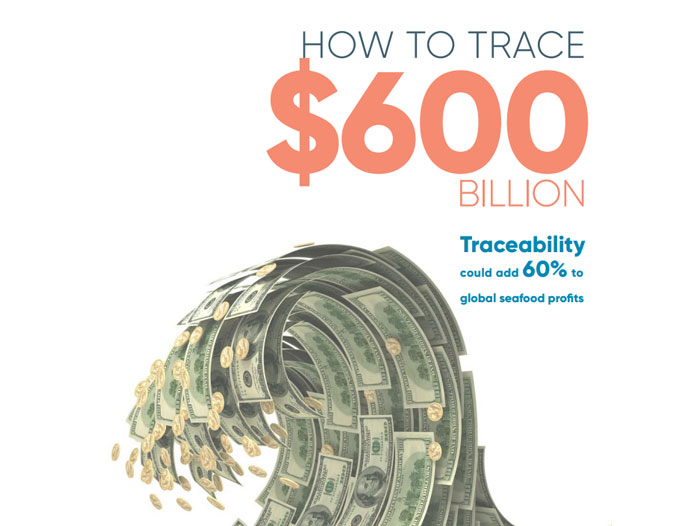Better Traceability Could Boost Global Seafood Profits by 60%, Finds Planet Tracker
September 29, 2022 | 4 min to read

An investment of just 1% of the global seafood industry’s revenue into improved traceability could increase total profitability by 60%, according to Planet Tracker’s latest report, How to Trace $600 billion.
The report explores whether 100% sea-to-plate traceable seafood is a viable reality, with only 29% of global production currently traceability-ready, what it would take to achieve 100%, and what the implications would be for the industry at large.
Traceability is the ability to systematically gain detailed insight into a product’s history across every stage of the supply chain, revealing its origins and any treatments or transformations undergone. It enables companies to better measure and improve their environmental and social impact, as well as their overall production efficiency. The primary cost benefits uncovered by Planet Tracker take the form of reduced spend on food recalls, food waste and staff.
François Mosnier, Head of Oceans Programme at Planet Tracker, comments: “Across the seafood supply chain, there’s a low average profit margin, meaning the total cost of production is really the main driver of end-prices. Cutting down on even a few areas of unnecessary expenditure, which can be identified through improved traceability, can thus result in significant profit boosts. Just a 1% investment could unlock a USD 600 billion-dollar boost in global seafood enterprise valuations.
“What’s more, our methodology for calculating potential savings was incredibly conservative – the true potential boost to global profits could in reality be much bigger. So. it’s not just the companies, but the financial institutions backing them who should be demanding change”.
The report identifies 23 investors who have over 5% of their equity portfolio in companies in the global seafood supply chain poorly rated for traceability.
Planet Tracker calls for all investors with exposed equity to the industry to ask six key questions of portfolio companies:
- What traceability systems are currently in place at the company?
- What is their scope, precision, breadth and depth ?
- How interoperable are the company’s traceability systems with those of suppliers and clients? Do they use GDST standards?
- What prevents the company from implementing robust traceability solutions on 100% of its products?
- What would be the investment, costs and benefits to become 100% traceable?
- How can investors and lenders support the transition towards being 100% traceable?
Governments can also help by:
- Relocating harmful subsidies towards traceability investments
- Introducing compehensive traceability-related regulation
The report builds on several past research reports by Planet Tracker into global supply chain traceability, including Traceable Returns. Implementing Traceability – Seeing through Excusesfor seafood andLifting the Rugfor textiles.
ABOUT PLANET TRACKER
Planet Tracker is a non-profit financial think tank producing analytics and reports to align capital markets with planetary boundaries. Our mission is to create significant and irreversible transformation of global financial activities by 2030. By informing, enabling and mobilising the transformative power of capital markets we aim to deliver a financial system that is fully aligned with a net-zero, nature-positive economy. Planet Tracker proactively engages with financial institutions to drive change in their investment strategies. We ensure they know exactly what risk is built into their investments and identify opportunities from funding the systems transformations we advocate.
ABOUT SEAFOOD TRACKER
Seafood Tracker investigates the impact that financial institutions can have on sustainable corporate practices through their funding of publicly listed wild-catch and aquaculture companies. Our aim is to align capital markets with the sustainable management of ocean and coastal marine resources.
Seafood Tracker is a part of the wider Planet Tracker Group of Initiatives.
